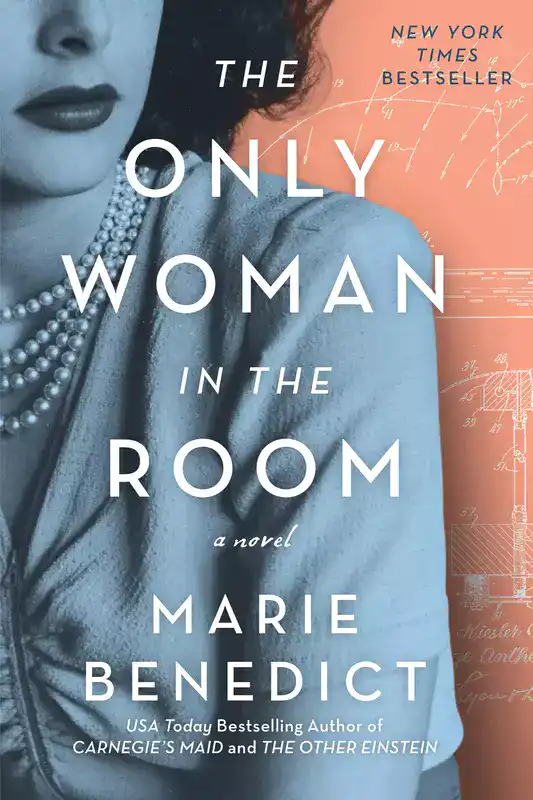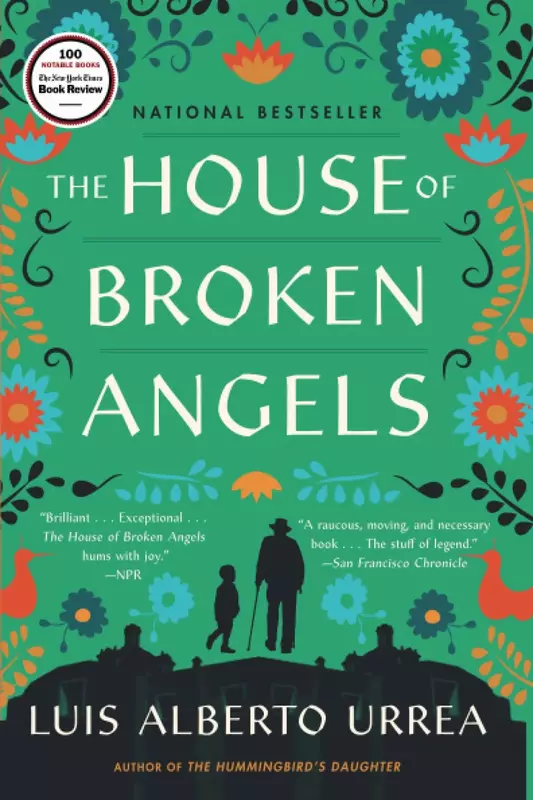This post may contain affiliate links. Read more here.
The book club questions for Intimacies by Katie Kitamura delve into the complex themes of relationships, desire, and identity. Through exploring the perspectives of the main character, readers can contemplate the intricacies of human connection and the ways in which our desires shape our lives.
The novel follows the story of an unnamed first-person narrator who works as an interpreter for the International Criminal Court in The Hague. The interpreter, a woman of many languages and identities, is looking for a place to finally call home. She becomes entangled in personal dramas, including a simmering love triangle with Adriaan, a man separated from his wife, and a friendship with Jana, who witnesses a seemingly random act of violence.
As the interpreter befriends the victim’s sister, she becomes increasingly obsessed with the crime. She is also pulled into an explosive political controversy when she’s asked to interpret for a former president accused of war crimes.
As you delve into the pages of Katie Kitamura’s Intimacies, you will find yourself immersed in a complex and intimate portrayal of human relationships. As the story unfolds, you will witness the struggles of a woman navigating a new job in a foreign country, the complexities of her romantic relationships, and the challenges of reconciling her personal desires with her professional obligations.
With this richly layered exploration of love, identity, and the human experience, there are many thought-provoking topics for discussion in a book club setting.
So whether you’re a seasoned book club member or a newbie, getting ready to dive into a new book like Intimacies by Katie Kitamura, it can be helpful to consider some questions that can spark lively and engaging discussions among your group. Below you will a list of book club questions that you may use for your discussion.
I hope you will enjoy my book club discussion prompts for Intimacies!✨
The Synopsis
An interpreter has come to The Hague to escape New York and work at the International Court. A woman of many languages and identities, she is looking for a place to finally call home.
She’s drawn into simmering personal dramas: her lover, Adriaan, is separated from his wife but still entangled in his marriage. Her friend Jana witnesses a seemingly random act of violence, a crime the interpreter becomes increasingly obsessed with as she befriends the victim’s sister. And she’s pulled into an explosive political controversy when she’s asked to interpret for a former president accused of war crimes.
A woman of quiet passion, she confronts power, love, and violence, both in her personal intimacies and in her work at the Court. She is soon pushed to the precipice, where betrayal and heartbreak threaten to overwhelm her, forcing her to decide what she wants from her life.
In love with literature? Try audio books or writing classes
for free for 30 days.✨
Selected Reviews for Intimacies
“[C]ooly written and casts a spell… One of Kitamura’s gifts… is to inject every scene with a pinprick of dread…. One of the best novels I’ve read in 2021… A taut, moody novel that moves purposefully between worlds.” —Dwight Garner, New York Times
“[A] thriller of a novel…. In exploring how one’s proximity to power and violence can hold endless repercussions, Kitamura interrogates how our intimacies can change the course of our lives.” —Time
“Calling all Rachel Cuskheads and W.G. Sebald stans! Kitamura is a novelist of enchanting imagination and minimalist prose style…. The novel’s plot twists are of the subtle, jaw-tightening variety rather than the dramatic, stomach-knotting sort, but it’s still fair to call it a ‘psychological thriller.’ Intimacies is for those who like their addictive novels to sneak up behind them rather than slap them in the face.” —Molly Young, Vulture
“The way I tore through this book like it was a sexy beach read instead of a piercing meditation on the way language moderates our perception of violence! . . . About once every two pages, Kitamura writes a phrase that feels like a key turning inside your body. And if all of this doesn’t sound immobilize-you-on-your-couch-turning-pages-level good, just know that Barack Obama named it one of his favorite books of the year.” —Jenny Singer, Glamour
“Spare, exacting prose . . . with powerful questions about morality, responsibility, and how we tell stories.” – Shondaland
Book Club Questions for Intimacies
Spoiler alert: my book club questions may contain spoilers, so make sure to discuss them after you’ve finished reading.
- The book begins with the death of a parent and the physical distance of another. How do you think these events shape the narrator’s decisions and motivations throughout the story? Do you think the loss and absence of family members contribute to the narrator’s sense of displacement and disconnection?
- The interpreters in the court play a crucial role in how the witnesses and accused are represented. Do you think the interpreters have any responsibility for the outcomes of the trials they work on? What does this say about the concept of truth and its interpretation in legal proceedings?
- In what ways does the novel explore the impact of political power on personal lives? How do the political controversies at the ICC reflect larger societal issues?
- Throughout the story, many aspects are impermanent or shifting, such as Jana’s neighborhood, the protagonist’s work contract and relationship status, and even her housing situation. How does this reflect the narrator’s mindset and how it evolves throughout the book? Do you think the constant change and instability serve a purpose in the narrative?
- The novel explores the idea of intimacy in various forms, from personal relationships to the intimacy of language and interpretation. How does the novel challenge or expand our understanding of intimacy?
- Adriaan’s openness with the narrator changes over the course of the novel, raising questions about his true intentions and character. What do you think causes this shift in behavior, and what does it say about his relationship with the narrator? Is he being genuine in either his initial openness or his later guardedness, or is he manipulating the situation for his own benefit?
- In Chapter 2, the narrator describes the city’s veneer of civility as constantly giving way. Are there other instances throughout the book where this façade is evident, whether in the city or in the actions of its inhabitants? How does this theme of appearance versus reality affect the overall message of the book?
- Adriaan becomes a “more complicated figure” in the narrator’s imagination when she learns about his past. Do the other characters surrounding her undergo similar transformations as she gains new insights into their histories and motivations? Are these observations based in reality or are they influenced by the narrator’s own desires and longing for connection?
- In what ways does the unnamed protagonist’s work as an interpreter at the International Criminal Court (ICC) reflect her personal life in the novel? How does the court case she is tasked with interpreting impact her?
- Kees’ description of Gaby as a “fascinating woman” despite her faults brings up the question of how much of a person’s influence can be felt even without their physical presence. In what ways does Gaby’s past actions and character shape the events and relationships in the novel, particularly the main character’s interactions with Adriaan? Can her absence still have an impact on the present?
- Amina suggests that there is a required understanding between the accused and their interpreter. Are there instances in the book where intimacy is confused with proximity or familiarity, and vice versa? How does this impact the narrator’s relationship with the people she is interpreting for?
- The narrator’s job is interpreting, which impacts how she interacts with other characters and her environment. How does her role as an interpreter affect her reliability as a narrator, and does it influence the reader’s understanding of the events in the story? Is the narrator’s interpretation of events objective or subjective?
- The protagonist often feels unmoored in her life at the Hague, but there are moments where she seems to have a stronger connection to the person she is interpreting for than to other characters in the novel. How does this affect her sense of identity and belonging in her new city and relationships?
- Intimacy is a central theme in the novel, but it manifests in many different ways. From the intimacy of language and interpretation to the intimacy of physical touch and emotional connection, how do the various forms of intimacy in the novel shape the characters’ actions and relationships? Are there any instances where intimacy is used as a means of control or manipulation? How does the narrator’s own experience with intimacy evolve throughout the story?
- Security, whether in oneself, one’s space, or one’s relationships, is a recurring theme in the book. How does the protagonist’s sense of security, or lack thereof, affect the progression of the story? What does this mean for her sense of belonging in her new environment?
- The novel explores the power dynamics and complexities of language and interpretation. How does the protagonist’s work at the ICC reflect these themes? How does the novel challenge the idea of a clear and objective truth?
- Kitamura’s writing style is spare and precise, with a focus on small details and quiet moments. How does this style contribute to the overall mood and themes of the novel?
- Throughout the novel, the protagonist struggles with a sense of dislocation and a desire to find a place to call home. How does her personal history and experiences impact her sense of self and her relationships with others?
- How does the protagonist’s friendship with Jana impact the plot of the novel? How does Jana’s experience with violence parallel the protagonist’s experiences in her personal life and at the ICC?
- The novel’s ending is open to interpretation. What do you think happens to the protagonist? How does the ending reflect the novel’s larger themes and questions?
Additional Recommendations
Hope you enjoyed book club questions for Intimacies by Katie Kitamura! Here are some more book recommendations along with their synopses.
The Only Woman in the Room by Marie Benedict
Bestselling author Marie Benedict reveals the story of a brilliant woman scientist only remembered for her beauty.
Her beauty almost certainly saved her from the rising Nazi party and led to marriage with an Austrian arms dealer. Underestimated in everything else, she overheard the Third Reich’s plans while at her husband’s side and understood more than anyone would guess. She devised a plan to flee in disguise from their castle, and the whirlwind escape landed her in Hollywood. She became Hedy Lamarr, screen star.
But she kept a secret more shocking than her heritage or her marriage: she was a scientist. And she had an idea that might help the country fight the Nazis and revolutionize modern communication…if anyone would listen to her.
A powerful book based on the incredible true story of the glamour icon and scientist, The Only Woman in the Room is a masterpiece that celebrates the many women in science that history has overlooked
The House of Broken Angels by Luis Alberto Urrea
In this “raucous, moving, and necessary” story by a Pulitzer Prize finalist (San Francisco Chronicle), the De La Cruzes, a family on the Mexican-American border, celebrate two of their most beloved relatives during a joyous and bittersweet weekend.
“All we do, mija, is love. Love is the answer. Nothing stops it. Not borders. Not death.”
In his final days, beloved and ailing patriarch Miguel Angel de La Cruz, affectionately called Big Angel, has summoned his entire clan for one last legendary birthday party. But as the party approaches, his mother, nearly one hundred, dies, transforming the weekend into a farewell doubleheader. Among the guests is Big Angel’s half brother, known as Little Angel, who must reckon with the truth that although he shares a father with his siblings, he has not, as a half gringo, shared a life.
Across two bittersweet days in their San Diego neighborhood, the revelers mingle among the palm trees and cacti, celebrating the lives of Big Angel and his mother, and recounting the many inspiring tales that have passed into family lore, the acts both ordinary and heroic that brought these citizens to a fraught and sublime country and allowed them to flourish in the land they have come to call home.
Teeming with brilliance and humor, authentic at every turn, The House of Broken Angels is Luis Alberto Urrea at his best, and cements his reputation as a storyteller of the first rank.
Secluded Cabin Sleeps Six by Lisa Unger
Three couples rent a luxury cabin in the woods for a weekend getaway to die for in this chilling locked-room thriller.
What could be more restful than a weekend getaway with family and friends? An isolated luxury cabin in the woods, spectacular views, a hot tub and a personal chef. Hannah’s generous brother found the listing online. The reviews are stellar. It’ll be three couples on this trip with good food, good company and lots of R & R.
But the dreamy weekend is about to turn into a nightmare.
A deadly storm is brewing. The rental host seems just a little too present. The personal chef reveals that their beautiful house has a spine-tingling history. And the friends have their own complicated past, with secrets that run blood deep.
How well does Hannah know her brother, her own husband? Can she trust her best friend? Meanwhile, someone is determined to ruin the weekend, looking
Thank you for reading my book club discussion questions & happy reading! ❤️


